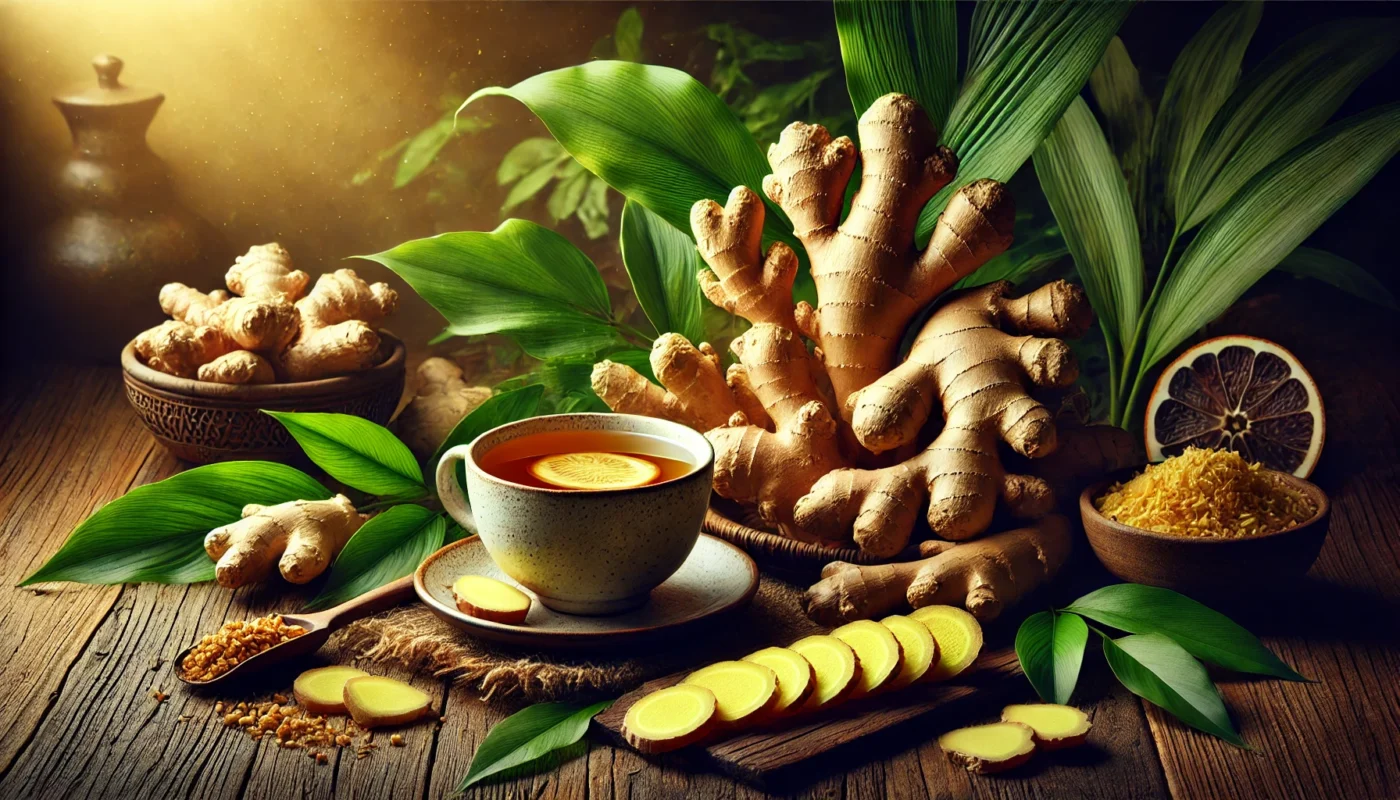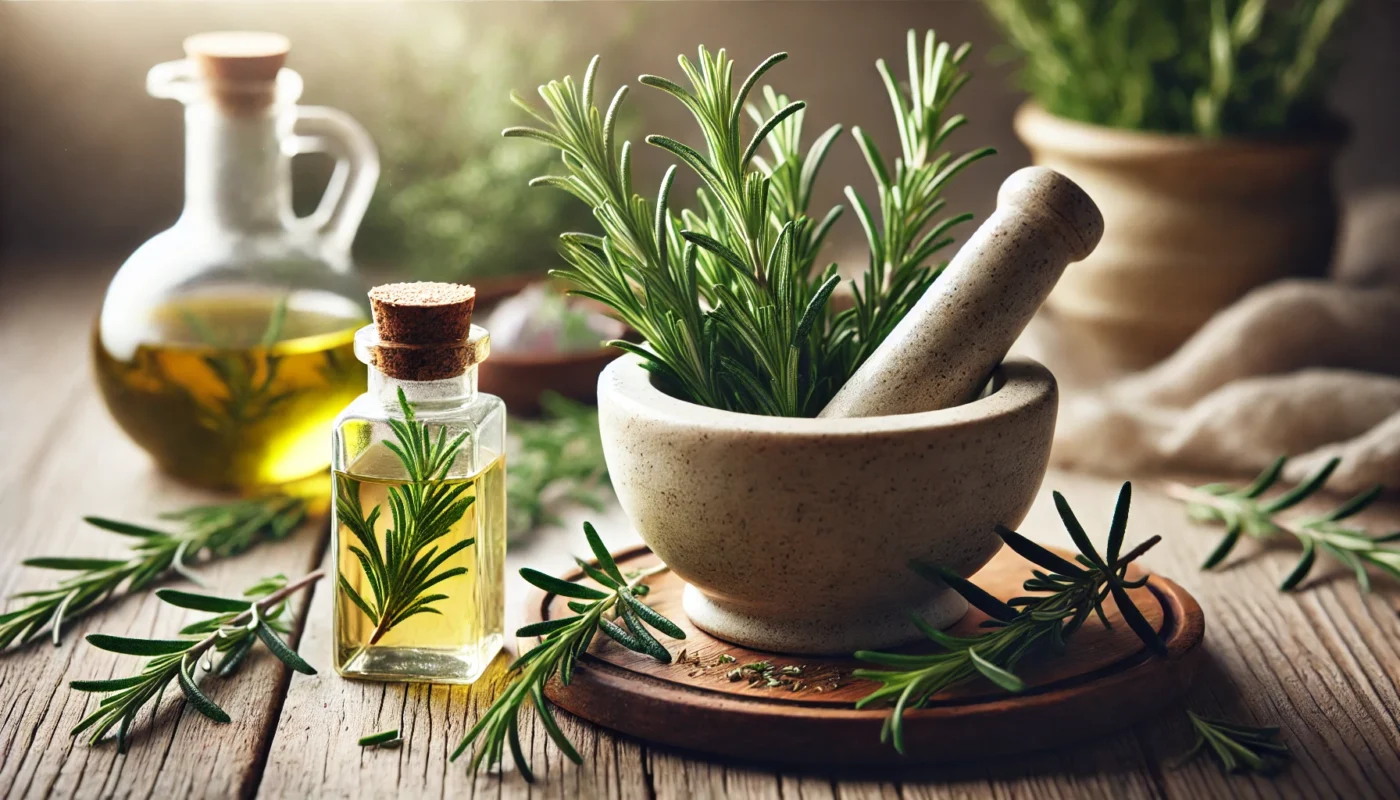Before exploring the anti-inflammatory herbs, it’s crucial to understand what inflammation is.
You may also like: 20 Powerful Anti-Inflammatory Foods
The Basics of Inflammation
Inflammation is the body’s natural response to injury or infection, aimed at protecting and healing. It is characterized by redness, swelling, heat, and pain, serving as a protective mechanism to remove harmful stimuli and initiate the healing process. This response is essential for survival, as it helps to eliminate infections and repair damaged tissues.
Chronic Inflammation
However, when inflammation becomes chronic, it can lead to severe health issues. Unlike acute inflammation, which is a short-term response, chronic inflammation persists over time and can result from a variety of factors. It is often silent and can contribute to the development of diseases such as diabetes, heart disease, and even cancer.
Lifestyle Factors and Inflammation
Lifestyle factors, including poor diet, stress, and lack of exercise, can exacerbate this condition. Consuming processed foods high in sugar and unhealthy fats can trigger inflammatory pathways. Additionally, chronic stress releases cortisol, a hormone that can promote inflammation when elevated for prolonged periods. Lack of physical activity further contributes to inflammation by affecting metabolic health and immune function.
Garlic: A Potent Anti-inflammatory Food
Garlic is renowned not only for its culinary uses but also for its medicinal properties.
The Science Behind Garlic
It contains sulfur compounds, such as allicin, which exhibit strong anti-inflammatory effects. Allicin is activated when garlic is crushed or chopped, initiating its powerful biological effects. These compounds work by inhibiting inflammatory enzymes and cytokines, reducing inflammation at a cellular level.
Research and Evidence
Studies suggest that garlic can reduce the production of pro-inflammatory cytokines, thereby mitigating inflammation. Research has shown that regular consumption of garlic is linked to reduced markers of inflammation, such as C-reactive protein (CRP). This reduction can lead to decreased risk factors for chronic diseases associated with inflammation.
How to Incorporate Garlic into Your Diet
To harness the benefits of garlic, consider adding fresh garlic cloves to your dishes. Crushing or chopping garlic activates its beneficial compounds, maximizing its health benefits. For those who prefer supplements, garlic capsules are an alternative, but it’s essential to consult with a healthcare provider before starting any new supplement regimen. Additionally, raw garlic can be added to dressings, dips, and marinades for an extra flavor and health boost.
Turmeric: The Golden Spice
Turmeric, often referred to as the “golden spice,” is a staple in traditional medicine, particularly in Ayurvedic practices.
The Power of Curcumin
Its active compound, curcumin, is a powerful antioxidant and anti-inflammatory agent. Curcumin works by blocking inflammatory pathways at multiple levels, making it effective against various types of inflammation. Its ability to neutralize free radicals further enhances its protective effects against cellular damage.
Scientific Studies and Benefits
Research has demonstrated that curcumin can inhibit multiple molecules involved in inflammation. Clinical trials have shown that curcumin supplementation can reduce symptoms in conditions like rheumatoid arthritis and inflammatory bowel disease. Its efficacy is comparable to some pharmaceutical drugs, without the associated side effects.

Practical Tips for Using Turmeric
Incorporating turmeric into your daily routine can be as simple as adding it to curries, smoothies, or teas. To enhance curcumin absorption, pair turmeric with black pepper, which contains piperine, a natural substance that boosts curcumin absorption by up to 2000%. Another method is to dissolve turmeric in a fat source, like coconut oil, which can improve its bioavailability. Experiment with “golden milk,” a warm drink made with turmeric, milk, and spices, for a soothing anti-inflammatory beverage.
Ginger: A Zingy Solution
Ginger is another herb celebrated for its anti-inflammatory properties.
The Active Compounds in Ginger
It contains gingerols, which are compounds that can reduce inflammation and pain. These compounds inhibit the production of pro-inflammatory chemicals and modulate immune responses. Ginger’s anti-inflammatory actions also extend to its ability to lower oxidative stress, which can further damage tissues.
Health Benefits of Ginger
Ginger is particularly effective in alleviating symptoms of osteoarthritis and other inflammatory conditions. Studies indicate that regular consumption of ginger can reduce pain and improve joint function in individuals with osteoarthritis. Additionally, ginger’s anti-nausea properties make it beneficial for digestive health, which can indirectly support overall inflammation reduction.
Ways to Use Ginger
Ginger can be consumed fresh, dried, or in supplement form. Fresh ginger can be added to teas, stir-fries, or smoothies. Ginger tea is not only soothing but also an effective way to enjoy its anti-inflammatory benefits. For those dealing with chronic inflammation, ginger supplements may be considered, under the guidance of a healthcare professional. Another delicious option is to make ginger-infused water or lemonade for a refreshing, health-boosting drink.
Rosemary: More Than Just a Culinary Herb
Rosemary is often used in cooking, but its medicinal properties should not be overlooked.
The Active Ingredients in Rosemary
It contains rosmarinic acid, which has been shown to suppress inflammation and oxidative stress. Rosmarinic acid works by inhibiting the production of inflammatory mediators and scavenging free radicals, providing a dual approach to inflammation reduction.
Benefits Beyond Cooking
Rosemary is particularly beneficial for respiratory health, as it can reduce inflammation in the airways. Its anti-inflammatory effects extend to improving circulation and digestion, which can indirectly support overall health. Rosemary’s aroma is also known to enhance cognitive function and mood, offering additional wellness benefits.
Incorporating Rosemary into Your Life
Rosemary can be used fresh or dried in a variety of dishes. Additionally, rosemary essential oil can be applied topically for its anti-inflammatory effects. However, it’s crucial to dilute the essential oil with a carrier oil before use to prevent skin irritation. Consider using rosemary in herbal teas, or make a rosemary-infused oil for cooking and salad dressings.
Cinnamon: A Sweet Approach
Cinnamon is not just a flavorful spice; it’s a potent anti-inflammatory agent.
The Role of Cinnamaldehyde
The antioxidants in cinnamon, such as cinnamaldehyde, have been shown to decrease inflammation and may lower the risk of disease. Cinnamaldehyde works by inhibiting the release of inflammatory cytokines and protecting cells from oxidative damage.

Health Implications of Cinnamon
Research suggests that cinnamon can improve insulin sensitivity and lipid profiles, both of which are linked to inflammation. Regular consumption may contribute to better metabolic health and reduced risk of inflammatory diseases like type 2 diabetes.
How to Add Cinnamon to Your Diet
Cinnamon can be sprinkled on oatmeal, added to smoothies, or used in baking. For a more concentrated dose, cinnamon supplements are available, but as always, discuss with a healthcare provider before beginning any new supplement. Another way to enjoy cinnamon is by making a cinnamon-infused honey or syrup, perfect for drizzling over pancakes or yogurt.
Peppermint: Cooling Inflammation
Peppermint is widely recognized for its soothing properties, particularly in digestive health.
The Benefits of Menthol
It contains menthol, which has anti-inflammatory and analgesic properties that can be beneficial in alleviating pain and inflammation. Menthol works by desensitizing pain receptors and providing a cooling sensation that can relieve discomfort.
Applications for Digestive and Pain Relief
Peppermint is effective in reducing symptoms of irritable bowel syndrome (IBS) and tension headaches. Its ability to relax the digestive tract and reduce spasms makes it a valuable herb for gastrointestinal issues.
Utilizing Peppermint for Inflammation
Peppermint tea is a simple way to enjoy its benefits. Additionally, peppermint oil can be used for topical application to relieve muscle pain, though it should be diluted with a carrier oil to prevent skin irritation. Try adding fresh peppermint leaves to salads or desserts for a refreshing twist.
The Importance of a Balanced Approach
While these herbs and spices can be powerful allies in reducing inflammation, it’s essential to adopt a holistic approach to health.
Nutrition and Inflammation
This includes maintaining a balanced diet rich in fruits, vegetables, whole grains, and healthy fats, which provide essential nutrients and antioxidants to combat inflammation. A diet low in processed foods and high in natural, whole foods supports a healthy inflammatory response.
Lifestyle and Stress Management
Engaging in regular physical activity, managing stress through mindfulness practices like yoga and meditation, and ensuring adequate sleep are crucial components of an anti-inflammatory lifestyle. These practices help to balance hormones, improve mood, and enhance overall wellbeing.

Final Thoughts
Incorporating these anti-inflammatory herbs into your lifestyle can provide significant health benefits. However, it’s important to remember that they should complement, not replace, conventional medical treatments. Always consult with a healthcare provider, especially if you have existing health conditions or are taking medication. By understanding and utilizing the natural anti-inflammatory properties of garlic, turmeric, ginger, rosemary, cinnamon, and peppermint, you can take proactive steps towards managing inflammation and enhancing your overall health.
Embrace the power of nature’s pharmacy and discover the profound impact these herbs can have on your wellbeing. Inflammation doesn’t stand a chance against the arsenal of anti-inflammatory foods and herbs at your disposal. Adopting a balanced approach that combines herbal remedies with healthy lifestyle practices will empower you to achieve optimal health and vitality.
Further Reading:
5 Spices with Healthy Benefits
Which Spices Fight Inflammation?
Herbs and Spices: The Secret Weapons of an Anti-Inflammatory Diet
anti-inflammatory, herbs, garlic, turmeric, ginger, rosemary, cinnamon, peppermint, inflammation, health, wellness, natural remedies, chronic inflammation, nutrition, lifestyle, holistic health
Important Note: The information contained in this article is for general informational purposes only, and should not be construed as health or medical advice, nor is it intended to diagnose, prevent, treat, or cure any disease or health condition. Before embarking on any diet, fitness regimen, or program of nutritional supplementation, it is advisable to consult your healthcare professional in order to determine its safety and probable efficacy in terms of your individual state of health.
Regarding Nutritional Supplements Or Other Non-Prescription Health Products: If any nutritional supplements or other non-prescription health products are mentioned in the foregoing article, any claims or statements made about them have not been evaluated by the U.S. Food and Drug Administration, and such nutritional supplements or other health products are not intended to diagnose, treat, cure, or prevent any disease

